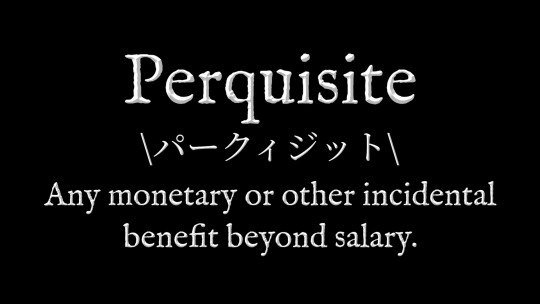The Pursuit of Eudaimonia Wishing to be Loved & Lovely.
Don't wanna be here? Send us removal request.
Text




SERENA WILLIAMS during Kendrick Lamar’s Halftime Show at Super Bowl LIX
29K notes
·
View notes
Text
youtube
🎮✨ Ratchet & Clank + Revolutionary Philosophy = The Ultimate Combo ✨🎧 Just spent the night diving into Ratchet & Clank: Going Commando while listening to William Godwin's Enquiry Concerning Political Justice and its Influence on Morals and Happiness, Volume 1 (read by LibriVox). Let me tell you, the juxtaposition between high-octane space battles and 18th-century anarchist philosophy is... surprisingly epic. 😅
While Ratchet and Clank are busy dismantling evil corporations and saving the galaxy, I’m over here pondering Godwin’s bold ideas:
“Laws are not a product of the wisdom of our ancestors; they are the product of their passions, their timidity, their jealousies, and their ambition.”
It’s wild to think how both this audiobook and Ratchet & Clank share a common thread: challenging power structures and questioning authority. Who knew old-school anarchist philosophy could pair so well with a Lombax and a robot sidekick? 🤔💥
Anyone else love multitasking like this? Drop your weird audiobook + video game combos below! 👇
4 notes
·
View notes
Text

Cybill Shepherd in 'The Last Picture Show' - 1971
1K notes
·
View notes
Text

Cybill Shepherd: The First Picture of Summer
3K notes
·
View notes
Text
youtube
In the aptly titled treatise What's Wrong With the World , one of the twentieth century's most memorable and prolific writers takes on education, government, big business, feminism, and a host of other topics. A steadfast champion of the working man, family, and faith, Chesterton eloquently opposed materialism, snobbery, hypocrisy, and any adversary of freedom and simplicity in modern society. Culled from the thousands of essays he contributed to newspapers and periodicals over his lifetime, the critical works collected for this edition pulse with the author's unique brand of clever commentary. As readable and rewarding today as when they were written over a century ago, these pieces offer Chesterton's unparalleled analysis of contemporary ideals, his incisive critique of modern efficiency, and his humorous but heartfelt defense of the common man against trendsetting social assaults.
2 notes
·
View notes
Text
youtube
Will Ferrell was acting as though he was farctate, colloquially referred to as a 'Food Coma,' in the 2009 film 'Land of The Lost' when his character claimed to have eaten Arby's, Popeyes, Del Taco & Subway—also, it appears he had eaten a full pizza.
#Will Ferrell#Land Of The Lost#Farctate#Vocabulary#MorVocabulary#Moribund Institute#Food Coma#Youtube
1 note
·
View note
Photo


Tamala Jones at “The Wood” Hollywood premiere (1999).
2K notes
·
View notes
Text
youtube
Pachylatry [파치라트리] the worship or veneration of thickness, density, or substantial qualities.
Etymology:
Prefix "Pachy": The prefix "pachy" is derived from the Greek word "pakhus" (παχύς), which means "thick" or "dense." This prefix is commonly used in English to indicate thickness, density, or compactness in various words. For example, "pachyderm" refers to animals with thick skin, and "pachycephalosaur" refers to dinosaurs with thick skulls.
Suffix "-latry": The suffix "-latry" is used in English to indicate the worship, adoration, or veneration of a particular subject or concept. It is derived from the Greek word "latreia" (λατρεία), which means "worship" or "service."
Combined Meaning:
As a neologism, "pachylatry" combines the "pachy" prefix, which conveys the idea of thickness or density, with the "-latry" suffix, which implies the worship or veneration of a subject. Therefore, "pachylatry" can be interpreted to mean the worship or reverence of thickness, density, or substantial qualities, or it may suggest the adoration of concepts or objects characterized by their thickness or density.
#ThiccAndProud#Thic#ThiccLove#ThicknessWorship#ThickerTheBetter#Pachylatry#AllAboutThatGirth#Neologism#Neologisms#MoribundMurdoch#Moribundity#The Moribundity#MoribundInstitute#MorDictionary#Youtube
0 notes
Text
The Surprising Etymology of "Joukery": From Dodging to Deceit
Language is a fascinating tapestry of words and phrases that have evolved over centuries, often taking unexpected turns in their meanings and connotations. Sometimes, a word might sound offensive at first glance, but delving into its etymology reveals a surprisingly innocent origin. "Joukery" is one such word. Though it might initially strike you as a potentially offensive term, its etymology takes us on a journey from dodging to deceit.

The Mysterious "Joukery"
"Joukery" is a word that doesn't see much use in modern English, but it still lingers in some corners of the language, meaning trickery or deceit. It's a term that can sound harsh, even offensive, depending on the context in which it's used. However, when we dig into its history, we uncover a much more innocent beginning.
Etymology of "Joukery"
To understand the origins of "joukery," we need to break it down:
Jook: The first part of the word, "jook," is the key to its meaning. "Jook" is a term that can be traced back to Scottish and Northern English dialects. It means to dodge or move quickly to avoid something. It has the sense of a quick, evasive action, much like when someone ducks or sidesteps to avoid being hit or caught.
-ery: The second part of "joukery" is the suffix "-ery." In this context, "-ery" is used to form nouns that denote a place or condition. It's a suffix that has its roots in Old French, where it often transformed adjectives or verbs into nouns.
So, when we put these elements together, "joukery" essentially means the act or condition of dodging or avoiding things quickly. This concept of dodging or evading forms the basis for its eventual shift in meaning towards trickery and deceit.
The Evolution of Meaning
Language is constantly evolving, and words can change their meanings over time. In the case of "joukery," its transformation from a word denoting evasive action to one describing trickery likely occurred as people began to associate evasive actions with deceitful intentions.
Imagine a situation where someone is constantly dodging questions or evading the truth. Over time, it's not difficult to see how "joukery" could come to describe such behavior. The line between evading questions and engaging in trickery blurs, and the word naturally takes on a more negative connotation.
"Joukery" serves as a compelling example of how words can take on meanings that diverge from their innocent origins. What may seem like an offensive term today actually began as a description of quick, evasive actions. The evolution of language is a complex and dynamic process, shaped by the way people use and understand words in various contexts.
So, the next time you come across a word that sounds potentially offensive, take a moment to explore its etymology. You might uncover a fascinating journey that leads you from seemingly harsh connotations to a more innocent starting point, like the intriguing path that "joukery" has followed from dodging to deceit.



4 notes
·
View notes
Photo

A Japanese couple take a selfie together, Japan, 1920s [800x866] Check this blog!
46 notes
·
View notes
Text

Pilot Shirley Slade, 1943 (fake by the fashion photographer Nick Clements)
77 notes
·
View notes
Text

Mario Sorrenti - Shalom Harlow Wearing a Dress by Helmut Lang (Vogue Italia 1995)
666 notes
·
View notes
Photo

Perquisite [パークィジット] (chiefly in the plural) Any monetary or other incidental benefit beyond salary.
https://www.redbubble.com/i/t-shirt/P-Perquisite-Transliteration-Katakana-Mammonist-Murdo-Wear-Your-Dictionary-by-MammonistMurdo/114689576.JZXP1?asc=u
5 notes
·
View notes



